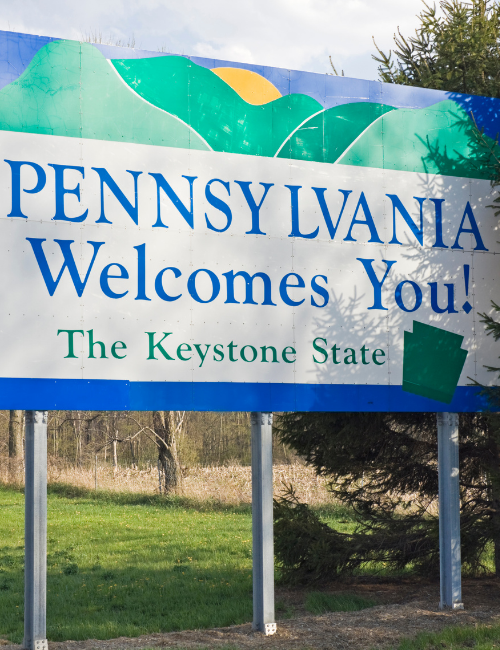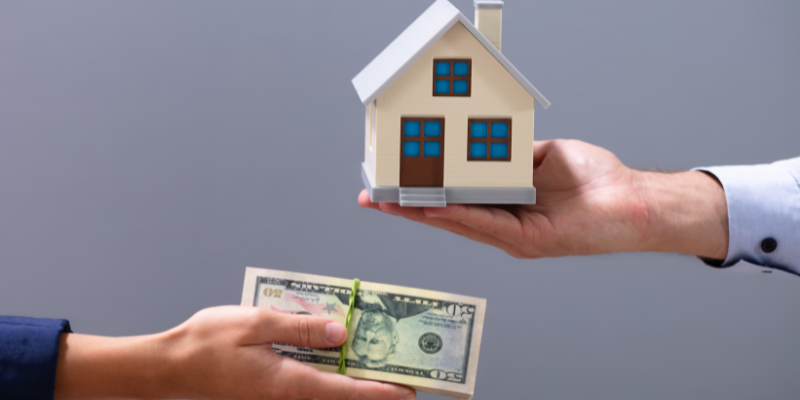
Selling a house in Pennsylvania comes with several costs beyond just the expert’s commission. From closing fees and repairs to taxes and staging, these expenses can add up quickly. Nura Home Buyers breaks down what you can expect to pay when selling your home in the Keystone State.
Understanding the Overall Costs to Sell a Home in Pennsylvania
While selling a house in Pennsylvania, there are a number of costs that can have a big effect on the end price. There are both known and unpredictable costs in this list. With these costs broken down, buyers can better plan for their future financial obligations. Additional things like local market trends and the specifics of the property have a big impact on overall prices. To help you make smart choices about how to prepare your home for sale, we’ll talk about the main costs of selling a home in Pennsylvania and how changes in the market affect these costs.
Breaking Down the Major Expenses in Pennsylvania
For a successful Pennsylvania house sale, numerous key costs must be considered. Closing costs are a big expense that includes various fees required to complete the house sale. Transfer taxes, title insurance, and attorney fees are common. Understanding closing cost components clarifies the total financial outflow. If termites or structural issues are found during the buyer’s inspection, home inspection, and repair fees may apply.
Another major expense is house staging and marketing. Professional staging and photos can boost your home’s sale price and attract buyers. To increase market awareness, marketing costs like listing fees for traditional or digital platforms must be considered. The house’s condition and age may require upfront repairs or modifications to boost its desirability in a competitive market.
Selling at a fair price that reflects market conditions and the home’s selling condition requires understanding these costs. Legal fees may apply to property transfers for homeowners. These things add up to the cost of selling a house, so planning and budgeting can help avoid surprises. By breaking down these areas, sellers can learn how to invest resources to maximize house sale returns.
The Impact of Market Conditions on Selling Costs in Pennsylvania
The Pennsylvania real estate market affects home prices and the home sale process. Market circumstances like buyer demand and interest rates affect spending. When demand exceeds supply, homeowners may be able to charge higher prices, offsetting some selling costs. In contrast, sellers may need to spend more on curb appeal or renovations to entice buyers in a buyer’s market. Interest rates also matter; lower rates stimulate buyer activity, which can speed up the home-selling process and reduce listing expenses. Understanding market trends helps homeowners time their sale to minimize costs and maximize earnings.
Pennsylvania job growth can also affect market dynamics, competitiveness, and pricing. Negotiations are often affected by market activity. In a competitive market, sellers may accept fewer buyer contingencies, decreasing repair or closing costs. In slower markets, sellers may offer more incentives to close, affecting profits. Comparative market analysis and discussion with market analysts can help you tailor your home-selling strategy to market conditions. Consider these market effects to better plan for financial ramifications and make smart pricing and budgeting decisions for your home. Strategic planning based on market conditions streamlines house sales and maximizes profit.
Navigating Expert Commissions in Pennsylvania
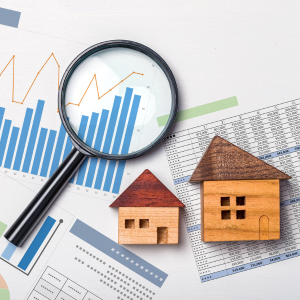
If you want to sell your home for cash in Pennsylvania, it’s important to understand how expert commissions work. Commissions can significantly affect how much you pay to sell your home and are an essential part of the decision-making process. By learning about Pennsylvania’s standard commission rates and how to negotiate them, sellers can better manage their costs and potentially increase their profits. To successfully navigate this part of the home-selling process, you need to know what to expect and how to leverage market conditions to save money without sacrificing the quality of service your broker provides.
Standard Commission Rates in Pennsylvania
Pennsylvania commissions are determined by local market conditions, industry standards, and property seller-expert agreements. Standard commission rates are 5% to 6% of the home’s final sale price; however, they might vary depending on property valuation, professional experience, and service level. These commissions are split between the seller’s and buyer’s experts, encouraging professionals to work together to close a sale. The local market can also lower realtor rates due to severe competition.
For higher-value properties or slower markets, experts may cut their rates to secure listings or add services to their costs. Sellers must understand what the commission includes, from photography and marketing to negotiating and closing support, to receive value for their money. Market research is crucial; sellers should compare local homes to determine average commission rates. This research helps determine which realtor or expert meets your financial and service needs.
Also, industry developments might affect standard prices, so keep informed. Innovative real estate professionals may provide reduced commissions or à la carte solutions to meet seller needs as the industry evolves. Knowing this helps sellers choose the best option for their property goals. Finally, Pennsylvania real estate economists’ research and annual reports can illuminate commission rate variations, reflecting economic factors including employment and area growth. These tips help homeowners plan for costs. Understanding the standard commission framework helps sellers budget and decide where to spend their money to sell a Pennsylvania house.
Negotiating Commissions to Save Money in Pennsylvania
Homeowners who want to maximize house-selling revenues must negotiate commission rates. Pennsylvania commission structures may look strict, but conditions and negotiations allow fee adjustments. Dual agency circumstances, where the listing expert represents the buyer, are one approach. Dual representation may lower commissions, saving sellers money.
Tiered compensation systems, which reward experts for performance criteria like selling price and sale speed, may also interest homeowners. This could motivate experts to sell the home quickly and for a premium in a vibrant property market, benefiting both parties financially. Open discussions regarding services can reveal adjustment options. If they can promote their home elsewhere, sellers can bargain for lower fees by opting out of some marketing services.
Before signing a listing agreement, interviewing numerous experts can provide inventive commission structure ideas. Experts often bargain their fees to get a listing, especially if the property is in a desirable area or the market is softened by fewer listings. These conversations can benefit from commission data comparisons from similar Pennsylvania property sales. Sellers who know their property’s market advantage might also negotiate a lesser commission. Experts may accept better conditions if your house is in a high-demand neighborhood or has distinctive, desirable characteristics, knowing the transaction will go quickly.
Communicating your goals and expectations to an expert can encourage collaboration and negotiation. Pennsylvania sellers can save money on expert commissions and get thorough counsel that matches their home-selling goals by entering these negotiations prepared.
Need to sell your property fast? At Nura Home Buyers, we buy houses in Philadelphia and nearby cities, offering fair offers and a quick, hassle-free process.
Insights into Seller Closing Costs in Pennsylvania
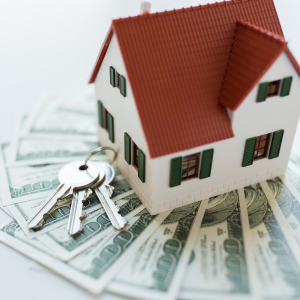
When selling a home in Pennsylvania, understanding seller closing costs is essential for sellers aiming to manage their financial expectations effectively. These costs can vary widely and include a host of expenses that are critical for sealing the deal. To better comprehend these outlays, it’s vital to distinguish between common costs that consistently appear in Pennsylvania home sales and more specific fees that may differ based on the transaction. By navigating these financial elements, sellers can strategize effectively to optimize their profits from the home sale.
Common Expenses in Pennsylvania
Like other home sellers in Pennsylvania, they should anticipate many of the same costs when selling their home. Most of these costs are closing costs, the fees legally required to finalize the sale of a home. One of the most significant costs is the state transfer taxes, which are levied on the sale price of the property. Although the buyer and seller can split these taxes, the seller must pay their portion, thus reducing their profit on the home. The costs of title insurance and the policy it defends are also closing costs. Most sellers view the title insurance premium as an appropriate cost to avoid post-sale legal issues.
In addition to the easily foreseeable ones, charges for house inspection and appraisal on how good and how much the property is worth are value-determining. Typically, the buyers fork out the cash for these expenses, but in particular, the sellers may pay for them in competitive markets so that they can expedite the house sale. As this is negotiating and closing contracts, sellers are entitled to engage the services of lawyers, which is common, albeit unnecessary. Real estate attorneys in Pennsylvania handle transactions with a high degree of caution, considering the highly intricate and convoluted real estate laws in the state.
Before closing, it is also critical to check if the utility bills and the homeowner association fees are in order, considering these are relatively minor fees. Sellers need to be aware of these predictable costs in order to minimize the risk of unpleasant financial surprises during the sale of their house. Such frequent costs enable sellers to negotiate and close with assurance, thereby maximizing their proceeds from the sale. Knowledge of these frequent costs prevalent in Pennsylvania helps sellers to negotiate with confidence and close on the deal.
Differences Between Closing Costs and Fees
Real estate professionals occasionally use the terms “closing costs” and “fees” interchangeably, but it’s crucial to know the difference if you want to sell a house in Pennsylvania. Closing costs refer to all the expenses associated with selling a house. Some of these are title insurance, transfer taxes, and escrow fees. They check that everyone is following the law and paying their bills.
Most of the time, you have to pay these costs during the closing meeting, where the paperwork is signed, the money is given, and the property is transferred. Extra costs might not be necessary or only apply to certain services that are part of the home-selling process. Sellers may offer a home warranty to encourage buyers to buy, but people often forget about it. It covers repairs after the sale. The expense of pest and termite inspections may be important to make buyers feel better about the condition of the home, which will make the move smoother and cut down on the need to renegotiate.
Expenses for marketing and advertising the home to possible buyers may not be included in the closing costs either. This is because vendors’ interests and techniques for competing have changed. If you separate service fees from closing costs, it will be easier to manage your budget for selling your house. Knowing about these variations will help you figure out what costs are most important, just like knowing how to negotiate commission rates.
Digital marketing can save you money compared to traditional promotion, but the costs of closing are more set. To accurately measure and distribute these financial chunks, sellers in Pennsylvania need to use tools and acquire professional help. If sellers realize the difference between closing costs and other fees, they may better plan for all the costs of selling their house. This information helps homeowners feel more confident and plan ahead so they may receive the best financial results while going through the unpleasant process of selling their home.
Closing costs are the total expenses due at the end of a real estate transaction, while fees are the individual charges within those costs. For more details, Contact Us at Nura Home Buyers.
Calculating the Costs of Preparing Your Home for Sale in Pennsylvania
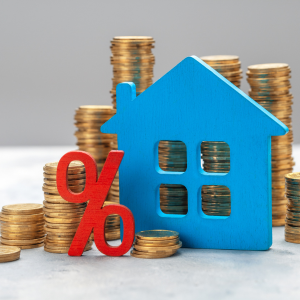
Selling your home in Pennsylvania necessitates advanced preparations that can affect the sale price, both positively and negatively, if not done correctly. Getting your home ready for the market involves making necessary changes that can add value. Improvements of this kind are necessary in order to draw in potential buyers, as well as make your home stand out in a tight market. These are common and anticipated costs. Having an appreciation of the costs can help your decision-making for things like staging, marketing, and the repairs that must be done. Upgrading the attractiveness of your home can help target buyers, which can be more profitable for you in the end.
Key Improvements to Enhance Property Value in Pennsylvania
Prioritizing critical renovations when selling your home can boost its appeal and price. They usually include interior and exterior modifications to make your home more appealing to purchasers. Your home’s market competitiveness can be improved by strategic spending. Start with inexpensive changes like fresh paint and flooring that yield a high ROI. New flooring or neutral paint can instantly improve a room’s appearance. These modifications improve the home’s appearance and indicate maintenance to potential purchasers.
The curb appeal is very important. Small external changes can make a big impression on potential buyers. Think about cutting overgrown plants, growing flowers, or mulching flower beds. A nice, appealing yard might impact purchasers’ decisions about the property’s upkeep. Clean and repair decks and fences to boost property value.
Within the home, kitchen and bathroom improvements are significant. Buyers generally reject these rooms, so renovations can boost ROI. Replace old fixtures or reface cabinets for a fresh look without extensive renovations. Green buyers like energy-efficient enhancements like new windows and insulation, which can increase value by lowering future power expenses.
A well-prepared home includes staging. Well-staged homes sell faster and for more. Staging helps purchasers imagine the room by arranging furniture and decor. It showcases the property’s best attributes, providing a warm, imaginative environment. Finally, fix any visible damage. Correcting these faults stops purchasers from undervaluing your home for avoidable flaws.
These property value improvements are essential to maximizing your home’s potential in a competitive market. Consistent and deliberate planning with targeted changes can make selling more profitable and attract savvy purchasers.
Looking to sell your home? Want a quick, hassle-free sale without costly repairs? Nura Home Buyers makes it easy with fair cash offers and full service. Reach out to us at (610) 550-8365 to receive your complimentary offer today.
FAQs:
What Are the Main Costs Involved in Selling a House in Pennsylvania?
There are fees involved in selling a house in Pennsylvania, such as closing costs, commissions for real estate professionals, and charges for staging the home. You should also think about possible charges for renovations and marketing.
How Can Market Conditions in Pennsylvania Impact the Costs of Selling a Home?
The costs of selling might change depending on the market, such as how many buyers are interested and what the financing rates are. In a seller’s market, higher prices can balance costs; however, in a buyer’s market, extra home renovations may be necessary.
How Important is Understanding Expert Commissions When Selling a House?
It’s important to understand expert commissions because they might have a big effect on the cost of selling. Knowing the going prices and how to haggle will help you keep costs down and make more money.
What Are Some Common Seller Closing Costs in Pennsylvania?
Transfer taxes, title insurance premiums, and perhaps attorney fees are some of the most common closing charges for sellers. These costs are quite important for closing a house transaction.
Why is Preparing Your Home for Sale Important in Maximizing Its Market Value?
Making important changes, like upgrading the inside and making the outside seem better, can have a big effect on how much your property is worth and how much it will sell for. Investing wisely in presentation can bring in buyers and boost returns.
Helpful Pennsylvania Blog Articles
- Can You Sell a House with a Lien in Pennsylvania?
- Can You Sell a House With Asbestos in Pennsylvania?
- How to Do Sale by Owner in Pennsylvania
- How Does Selling a House with a Mortgage Work in Pennsylvania
- Can You Sell House with Tenants in Pennsylvania?
- Capital Gains Tax After Selling a Home in Pennsylvania
- How Long After an Appraisal Can You Close in Pennsylvania
- Selling a Home That Needs Repairs in Pennsylvania
- How to Do a Quit Claim Deed on a House in Pennsylvania
- How Much Does It Cost to Sell a House in Pennsylvania?
